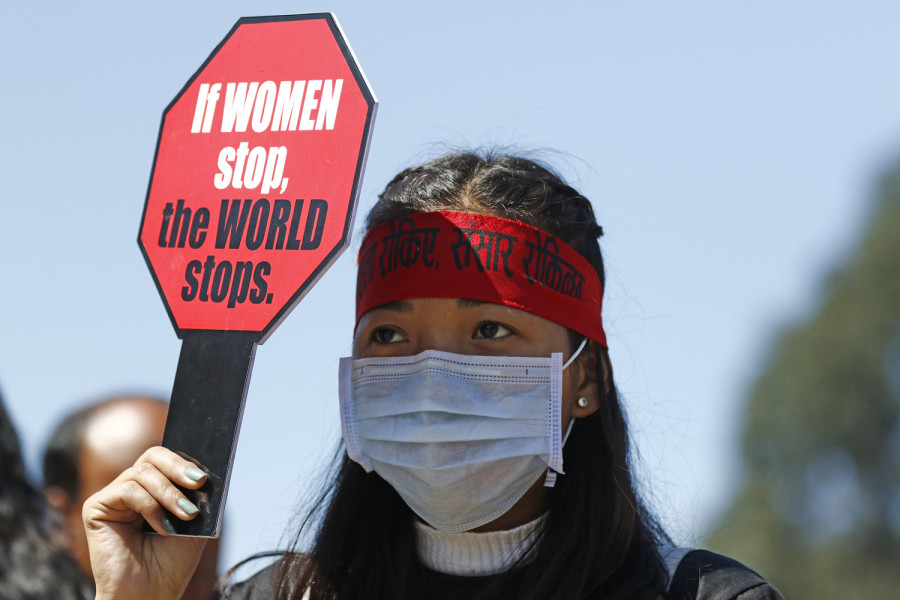Editorial
The fight goes on
Men and women both benefit from living in a gender-equal society.
A society that carries within it the seeds of exclusion, where one half of society is protected while the other half’s offended, cannot prosper. We are one such society. Like most developing countries, our women are treated differently than men. In many cases, the Nepali people are unequal by law too. The citizenship issue is one such law where different rules apply to men and women.
Reforms to nationality legislation have allowed Nepali women to transfer their nationality to their children. But the battle has only been half won. For instance, a child born to a Nepali female citizen from marriage with a foreign citizen in Nepal may be granted naturalised citizenship, but only after producing proof that the child has not acquired the citizenship of his father’s nation. These conditions do not exist for a child born to a Nepali male citizen from marriage with a foreign national.
Similarly, while women’s representation in politics has increased over time, thanks to the law that mandates 33 percent reservation, most women still do not have much say in the decision-making process. The latest case of Shivamaya Thumbahangphe, the ex-deputy speaker, still remains fresh in our memory. The row in the ruling party over the post of speaker and Tumbahangphe represented the patriarchal mindset that prevails in Nepali politics.
Nepali culture demands women to remain submissive to men, and this regressive school of thought extends even to the political sphere. Although Tumbahangphe was eligible to be the speaker, she fell short of one criterion—she was not a man. But the same leaders, particularly men, who failed to advocate for Tumbahangphe as the speaker are quick to extend Women’s Day messages on Twitter, however.
Year after year, although a few changes have taken place, and a thing or two might have changed for a handful of women, at the macro level, women are still in a position of disadvantage. Men who are in positions of power continue to provide lip service to women’s issues and agendas. Women empowerment and inclusivity make great talking points during election campaigns; but once the show is over, the leader’s commitment to ensuring them end too.
The National Women Commission still remains empty. There are only two women ministers in the 25-member cabinet. In boardrooms, the number of men still outdo the number of women. And as much as we hate to admit it, all leading newsrooms have men in charge. As long as we do not see full-blown women’s representation and meaningful participation in all important state institutions and avenues of knowledge production that bears tangible influence, Women’s Day celebrations will remain nothing more than a mere formality. Men and women both benefit from living in a gender-equal society. But regrettably, women are still far away from achieving true equality. Changing patterns of behaviour based on well-established systems of power is a long, slow business. But the fight must be sustained.
***
What do you think?
Dear reader, we’d like to hear from you. We regularly publish letters to the editor on contemporary issues or direct responses to something the Post has recently published. Please send your letters to [email protected] with "Letter to the Editor" in the subject line. Please include your name, location, and a contact address so one of our editors can reach out to you.




 8.22°C Kathmandu
8.22°C Kathmandu














